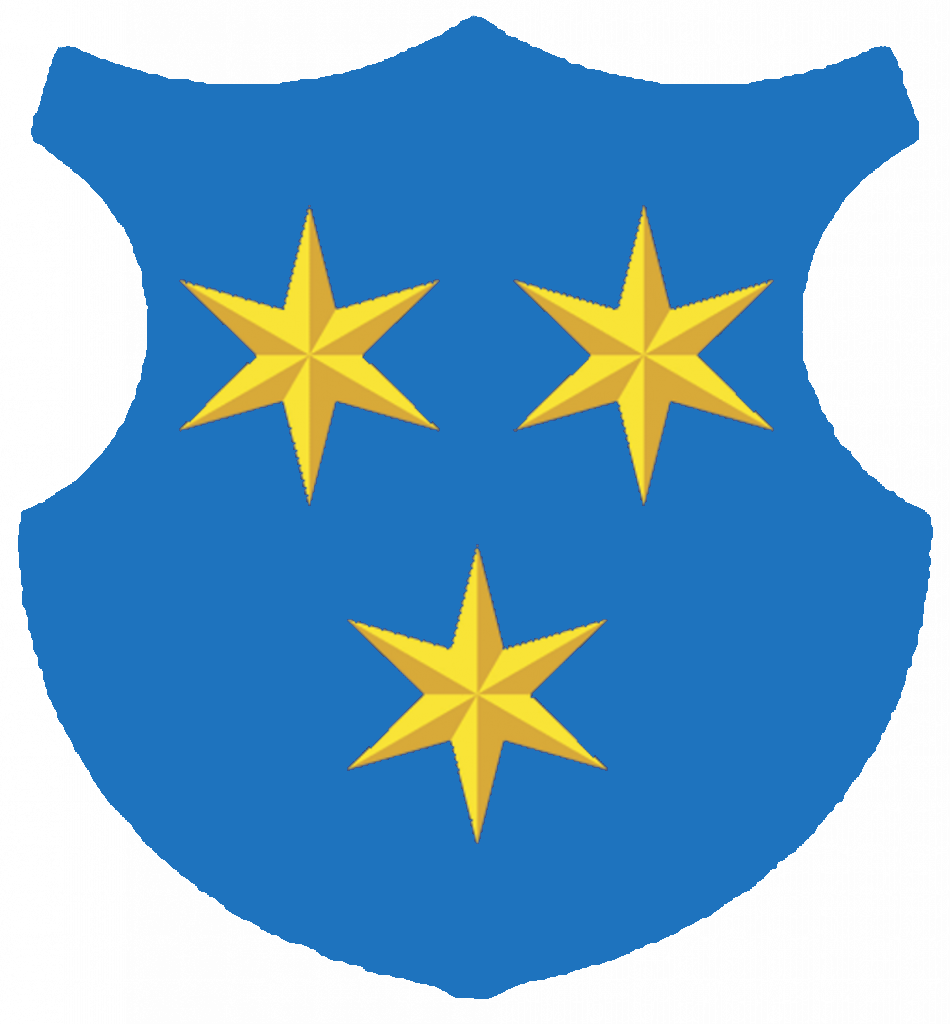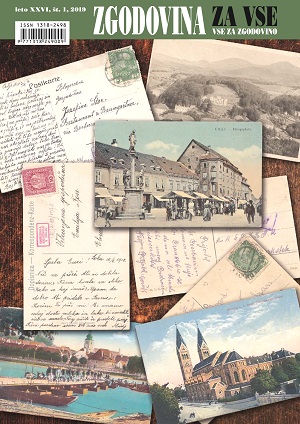Dušan KOS
THE LITTLE BIG MAN BEFORE THE QUEEN
Statehood ideas and the communication of a state official with the ruler and high-profile politicians during the major state reforms of the Hapsburg lands in the mid-18th century
The theory of the principle and functioning of the state developed fully in the first half of the 18th century. The paradigms of the freedom of man, the natural or divine law and the nature of the ruler’s power also formed occasional pastimes for a high state official, Franc Henrik Baron Raigersfeld (1697–1760). He was a mercantilist, a supporter of Enlightened Absolutism, and shared responsibility to as well as loyalty between the ruler and his subjects. He believed in the considerate ruler but not in Charles Montesquieu’s separation of power into three types. Raigersfeld’s ideas were based on his personal experience in public administration and his communication with Empress Maria Theresa and the ministers.
Aleksander ŽIŽEK
APPRENTICESHIP – ENTRY-TICKET TO THE WORLD OF THE TRADE GUILDS
Admission into training represented an important turning point in a boy’s life in the pre-modern era. If the future profession was chosen wisely, a path to guaranteed material existence opened up, along with a social reputation. In most cases, the parents and the three fates made the decision for the boy. Apart from those apprentices who completed their training at home (in the domestic workshop), leaving for training was associated with leaving home, integrating into a new life community and into a new household. The responsibility for the apprentice’s livelihood, education, professional development and security was handed to the master and his wife; however, the assistants and other members of the extended household also played a role in the training process. After some time, the state, too, became aware of the significance of this process and stipulated in the guild regulations the basic guidelines for training in a craft. Later on, apprentices were included in individual forms of regular schooling (Sunday schools), and regular attendance at Sunday school and religious education became the requirement for successful completion of training. Information regarding this can be obtained from the guild regulations, books and documents. The wider historical perspective will be outlined with the help of the literature. The scope of the article will be limited to the period between the two main legal acts that regulated the trades: The Inner Austrian Trade Rules of Charles VI. (1732) and the Trades Act of 1859.
Stanislav JUŽNIČ
GIAN RINALDO CARLI
Capodistrian Astronomer and a Relative of Alma Karlin from Celje
The erudite Celje native, Alma Karlin, was always proud of her Koper ancestry, certainly above all of Gian Rinaldo Carli, who married wealth and touched the clouds in Padua, Venice and Milan. Alma and Gian Rinaldo were some of the greatest travelers worldwide, although Alma traveled in reality, while her venerable relative Carli, above all, journeyed with a goose quill pen on paper. Gian Rinaldo Carli is ranked among the leading astronomers and inspired thinkers of Northern Italy and today’s Littoral region. Capodistrian Count Carli learned about modern astronomy in the early stages of his studies in Padua, especially about the work of Newton and his friend, the “discoverer” of Halley’s Comet, Edmond Halley. In his early thinking about the Argonauts, he relied on Newton and Halley’s computations of the movement of the constellations and the concomitant time period during which the Argonauts, in their ship the Argo, apparently traveled through our territory and especially through Carli’s home of Istria. As a Paduan professor of astronomy, Carli was the first professional astronomer from the present-day Slovenia territory and made an important contribution to the astronomical science for maritime orientation. As a teacher and reformer in Lombardy, he successfully advocated the introduction of astronomy to advanced classes in Pavia and Milan. The article describes Carli’s links with the leading astronomers of his time, such as the Frenchmen de la Hire and Cassini, or the first head of the Greenwich Observatory, John Flamsteed.
Karin ALMASY, Martin SAUERBREY
“NOT MUCH NEW. WAR IS HELL.”
World War I in Postcards from Lower Styria
The illustrated picture postcard from the beginning of the 20th century is an innovative source for history from below, offering insights into the lives of common people. The postcard was the first truly popular medium of mass communication and, before the rise of the telephone, the fastest means of everyday communication. Additionally, World War I made itself evident on postcards. Postcards can reveal signs of wartime, even though the war is rarely mentioned directly. By discussing examples from lower Styria, we seek to illustrate what can be learned about the time of World War I by looking at postcards: We can learn about everyday troubles and worries, but also how “normal life” continued for civilians. We can gain insights into the daily lives of soldiers and into the tense atmosphere among civilians — insights that cannot be found in official documents.
Bojana KRALJ
IF THE MOTHER SINGS, HER CHILD WILL ALSO SING.”
Folk songs in the musical opus of the composer Ubald Vrabec
The singing of folk songs and instrumental musical performance among the family had an impact on Vrabec’s musical composition and interpretation throughout his life. As a composer and choirmaster, he contributed to the development of music in the Trieste area and in Slovenia. For many years, he directed choirs, composed his own songs, harmonised and arranged folk songs. his rich opus of arrangements of folk songs for various choirs, the use of folk songs in instrumental performances and in the opera, publication of folk song arrangements in song books, recording of songs in the Trieste region and for Radio Koper as well as the Radio Koper logogram represent an important contribution to Slovenian music culture.
Marina VRHOVAC
“WE FORCE WOMEN TO ENTER POLITICS”
Representations of femininity in the discourse of parliamentary gender quotas
The article presents and analyses arguments for and against introducing gender quotas in the legislature. It considers the period 1994-2006, a period of heated debate about quotas in the Slovenian parliament. Based on a constructivist paradigm, the author addresses gender as a social phenomenon that is the result of historical and culturally placed mutual agreements made on the basis of language and practice. The debates on quotas in the parliament reveal the prevalent concept of “femininity” and the impact of “femininity” norms in our society on the behavior of women and their choice to enter politics. This sheds light on the discursively shaped dominant constructs of the apparently incompatible constructs of femininity and politics. It turns out that gender and “femininity” constitute the main barriers preventing women from entering politics. The discourse struggles over meaning were fought by male and female politicians with diverse values and interests. The protagonists’ power resources determined which meaning would prevail as the “common sense” one. The developments in the parliament can be seen as a mirror reflecting society, particularly regarding the gender wars. The results of the analysis are normative images of femininity.

